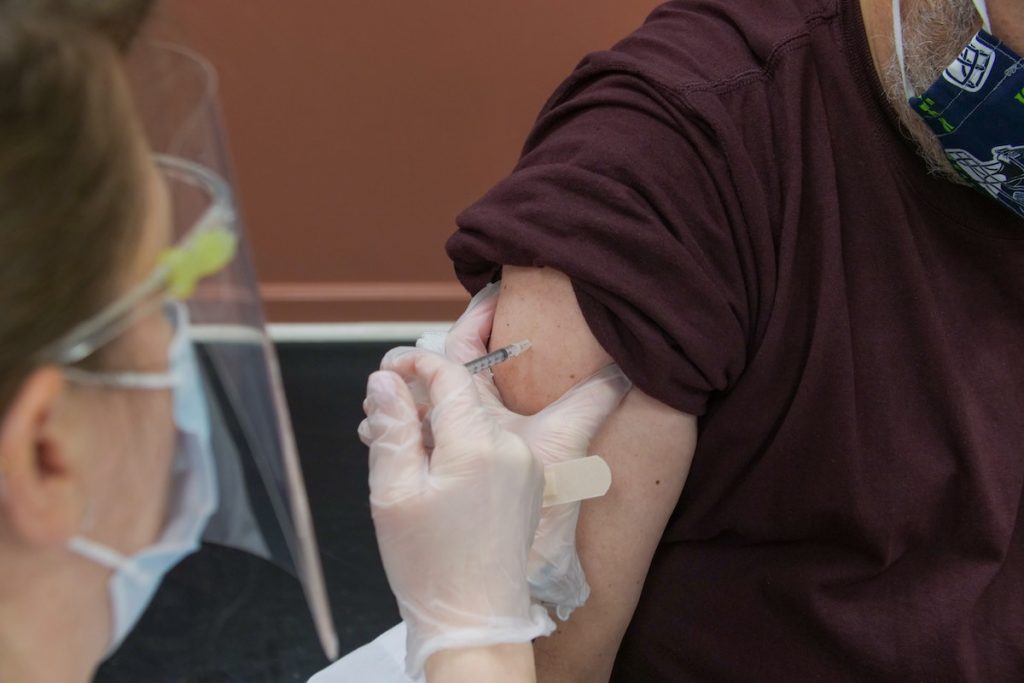With news circulating around a possible re-opening date in October, here are four things clubs need to know to prepare.
1. Staff vaccinations
The AHA has backed a plan to encourage all hospitality staff to be ‘double jabbed’ despite some reluctance among employees.
According to an AHA media statement, more than 6,500 staff members responded to the AHA NSW COVID-19 Employee Vaccination Survey with their views on vaccinations. 55.7 per cent said they will be fully vaccinated by the end of October, 28.2 per cent said they intend to be vaccinated and 9.5 per cent were undecided. A mere 6.6 per cent said they did not intend to be vaccinated.
More than 63.5 per cent of staff members surveyed believe it should be a requirement for all hotel employees to be fully vaccinated.
AHA NSW CEO John Whelan said it was obvious a clear majority of hotel staff want to work in a vaccinated environment – and want to get back to work.
2. Vaccine passports for patrons
Former Liberal Minister Craig Laundy, whose family business owns 30 hospitality venues, told the Daily Telegraph that he believes there will be health orders requiring both staff and patrons be vaccinated.
Laundy believes there will be a vaccine passport that will allow licensed venues to block unvaccinated patrons, single entry points and seated drinking only when venues re-open in October.
The Cox Plate held at Moonee Valley Race Club will also debut a ‘no jab, no entry’ policy.
Moonee Valley Racing Club chief executive Michael Browell told the Sunday Herald Sun that members and owners – locked out of the event last year after a government policy reversal – would be among the first offered admittance with proof of vaccination.
“The Covid-zero approach would have given us zero chance of having a crowd, but now the government is taking a different strategy forward and if we can keep those vaccination rates up, it does give us a chance.
“In late October, early November, we might see some level of crowds returning to these events.
“But the whole double vaccine passport test pilot scheme they are making noises about, we could certainly help kick that off,” said Browell.

3. Numbers reduced for major events
The Melbourne Cup will still be run at Flemington Racecourse, but the amount of people allowed to attend will depend on the success of the COVID measures taken at The Cox Plate and The Everest at Randwick.
Moonee Valley Racing Club chief executive Michael Browell told the Sunday Herald Sun that under the vaccine passport model, the race, which normally attracts around 38,000, will be limited to 3-5,000 people, spread across the course in various zones.
Previous major events that have trialled the double-jab approach are Wimbledon, where proof of COVID vaccination status was required, and the US Open tennis, which achieved full capacity with proof of vaccination and a negative test were required to gain entry.
4. Covid inspectors will be issuing fines
Clubs, beware. COVID inspectors will be out in force issuing fines for lax implementation of COVID safety plans.
Roseville Lawns Tennis Club’s recent four-figure fine is a cautionary tale.
The Club was recently fined $3,000 in the NSW Local Court after Liquor and Gaming NSW inspectors paid a compliance visit on 27 October last year.
At the time of the infringement, Club president Jacinta Howden told inspectors she was not aware they were required to hold two separate safety plans for the clubhouse, which includes a bar area – and the club’s main tennis courts.
The court heard that when inspectors arrived they saw eight players playing on two courts at the front of the clubhouse and when they entered the building signatures on a manual visitor sign-in register were “often illegible”, missing relevant contact details and the majority did not have a time-in recorded.
The original fine was $5,000 but Magistrate Compton noted the club did not have any prior convictions in NSW and downgraded it to $3,000, ordering it also pay $2,500 in legal costs.
Club president Jacinta Howden told the North Shore Times she thought the fine was “excessive”.
“We’re a very small volunteer-run club and $5,000 is going to take us a long time to reach,” she said.
“It’s not like we’re an RSL club or something where we have hundreds of people coming in and out – we don’t serve food and we didn’t have the bar open.
“We did have a safety plan for the sporting grounds, but not one for the bar because the bar was closed at the time and we didn’t know we’d need a COVID marshal.
“The only signatures (on the sign-in register) that weren’t eligible were our older members who are all in their 80s – we know who they all are.
“We take the health protocols seriously – we had hand sanitiser, we had a sign-in sheet and we couldn’t believe we got the same fine as Luna Park … we were just gobsmacked.”
